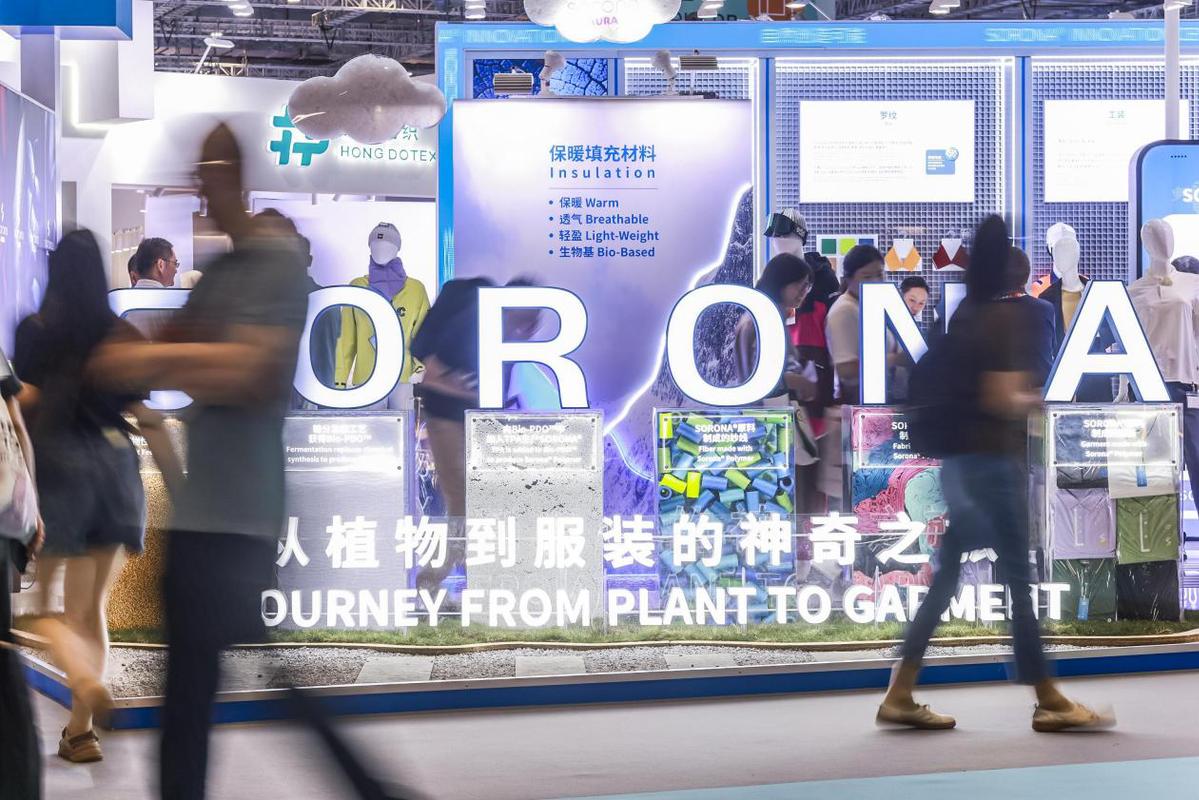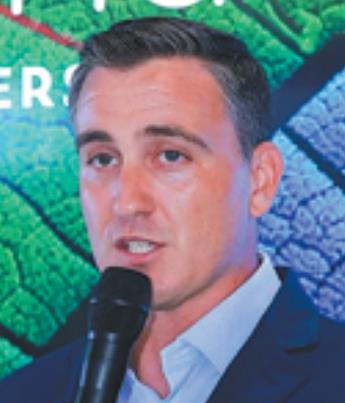CovationBio spends big for edge in sustainable textiles


Covation Biomaterials, a major producer of bio-based materials, is ramping up its commitment to meet the growing demand for sustainable textile solutions in the Chinese market.
With deep roots in China, the company is expanding its manufacturing base in the country to drive sustainable transformation in the textile industry, said Steven Ackerman, who was recently appointed the company's CEO.
Citing its signature bio-based polymer — Sorona — Ackerman said, "China has been the foundation of the Sorona apparel business for the last 25 years, and we're very excited to see that continue." The CEO made the comments during the autumn edition of the Intertextile Shanghai Apparel Fabrics exhibition in Shanghai earlier this month, where CovationBio and its partners showcased several latest sustainable innovations.

"We see significant opportunities both for domestic consumption and for China's role as a major exporter of sustainable textiles to the world," he said.
CovationBio's China strategy goes beyond market access. The company has established a robust technical and commercial team in China, including a research center in Shanghai and a manufacturing facility in Qidong, Jiangsu province.
The facility was developed with support from Zhejiang province-based Huafon Group, which is one of the world's largest producers of spandex fiber. "Joining our business and team with Huafon has allowed us to grow within China's immense textile landscape," Ackerman said.
Ackerman said the company also has ongoing investments to expand the Qidong facilities and is ramping up innovation, backed by research and development centers in both the United States and Shanghai.
In addition, CovationBio is preparing to launch BioPTMEG — a polyether containing up to 100 percent bio-based content that will target the spandex and polyurethane markets — aiming to significantly improve the life-cycle footprint of these materials.
A 10 billion yuan ($1.4 billion) investment is on the agenda to build its multi-phased Qidong production base into a major BioPTMEG manufacturing facility globally. With a total planned capacity of 500,000 metric tons per year, the facility will target the fast-growing spandex, polyurethane and other performance material sectors.
With China's textile industry leaning more to sustainability and functional performance, Sorona's blend of durability, softness and stretch has found wide appeal — from athleisure and workwear to outdoor and technical apparel, said the company.
"The Chinese market is quick to embrace both comfort and environmental responsibility, and we see that reflected in the growing demand for fabrics made with Sorona," Ackerman said.
At the Shanghai trade event, CovationBio released new Life Cycle Assessment results, which found that Sorona offers 44 percent less energy and emits 170 percent less greenhouse gas emissions than producing nylon 6 from non-renewable resources, and 41 percent less greenhouse gas emissions than producing polyethylene terephthalate.
Launched in 2000, Sorona was the world's first commercial polytrimethylene terephthalate polymer and is being widely adopted in a myriad of applications including athleisure, outdoor, workwear, carpets and faux fur.
"It's not just about being sustainable, it's about bringing real value and performance to the end user," Ackerman said.
Key to Sorona's success is CovationBio's global engagement across the textile value chain. The company maintains teams globally to support brands, mills, spinners and traders in adopting bio-based materials, he said.
"Sorona requires different processing conditions than traditional materials. Our team's technical expertise helps customers solve problems and develop innovative applications," he added.
Looking ahead, CovationBio plans further advances in both product sustainability and functionality, with new fiber technologies that add cooling or warming properties and improved odor control for textiles — all without compromising Sorona's environmental and performance benefits.
"Fashion and textiles are at a critical turning point. The next chapter will be about pushing boundaries even further with renewable chemistry and responsible innovation," Ackerman added.
wangzhuoqiong@chinadaily.com.cn




































